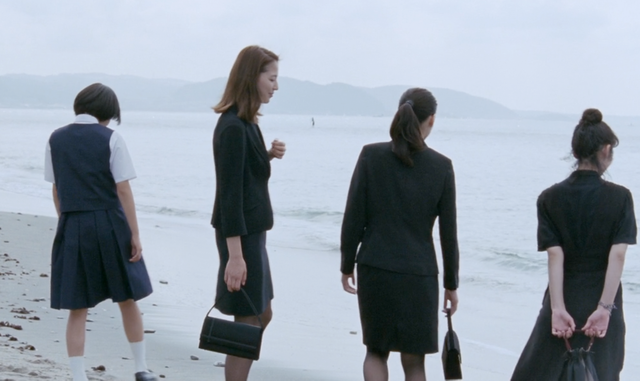Film Review: Our Little Sister (2016)
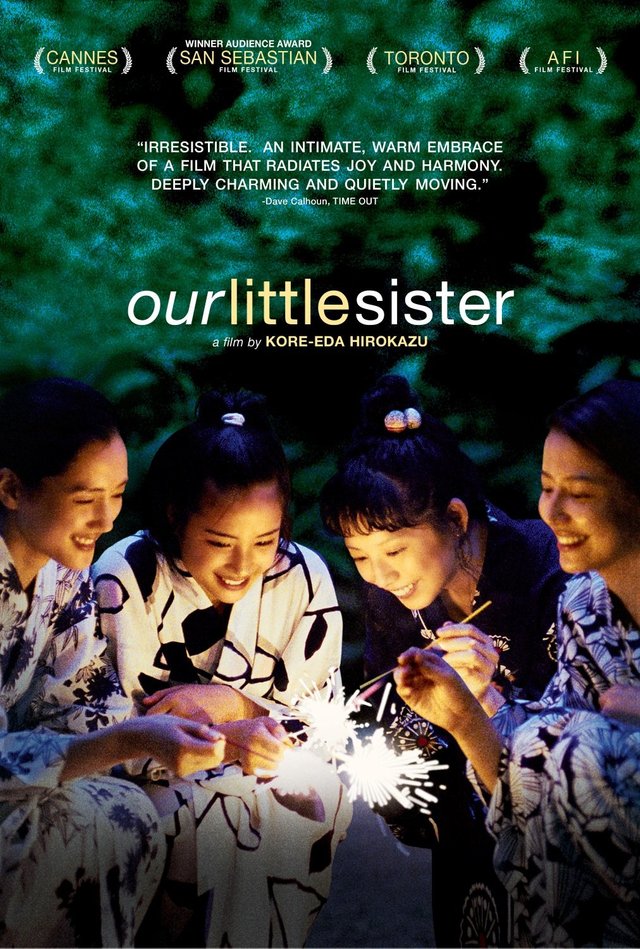
Review
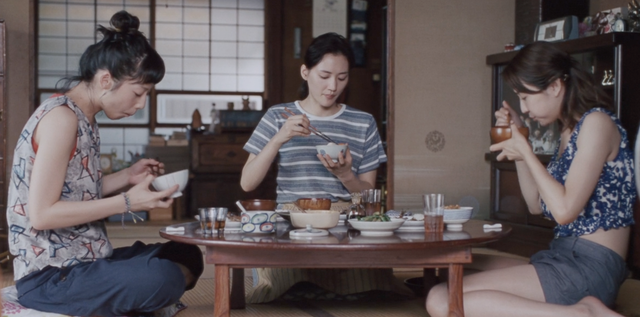
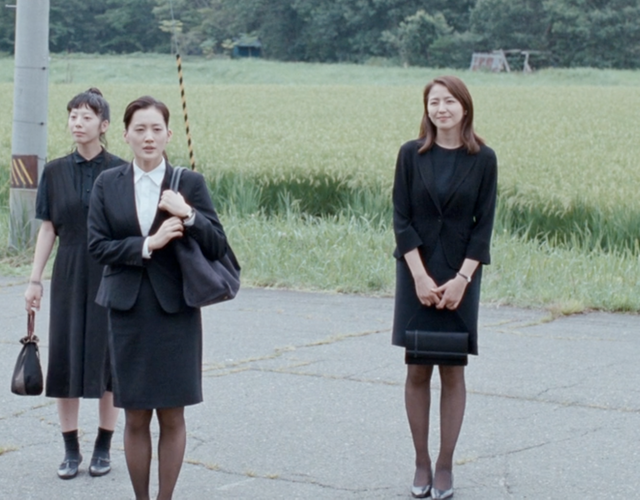
Less than two years ago, a piece called The 12 Best Japanese Movies You Should Watch, was posted on Culture Trip, and features an impressive and balanced collection of Japanese films across the years. I was proud to know that I had seen five of the twelve titles mentioned, and even reviewed two of them here, namely, Departures and Battle Royale. But I was also pleased to see that the film Our Little Sister, had also made the list, and quite deservingly at that.
A slice of life family drama, Our Little Sister, directed by Hirokazu Koreeda, focuses on three adult sisters who had something of a rocky childhood that consisted of a father that abandoned them to start a new family, and a less than responsible mother. This naturally lead the eldest, Sachi, to assume the position of mature caregiver for her two younger sister, Yoshino and Chika. After receiving news of their fathers' passing, Sachi informs her two sisters that despite personal feelings, they should fulfil their familial obligations by attending the funeral to pay their respects. While the two sisters go on to travel to their fathers' new hometown, Sachi eventually joins them in the end, and they all go on to meet their father's other daughter, and their half-sister, Suzu.
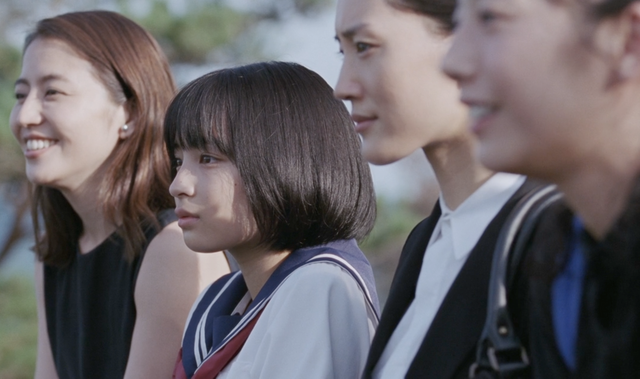
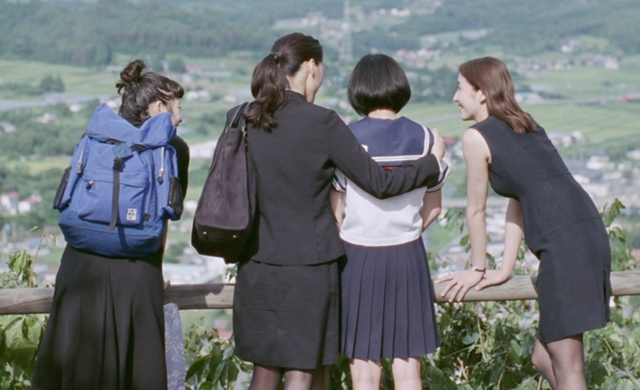
The three are surprised and impressed by the level of maturity and politeness that Suzu demonstrates, and their feelings of resentment for their father turns to sympathy and empathy for the effect that his death has on the life of this young highschool girl. Developing a fondness for her instantly, Sachi invites Suzu to come and live with them, an offer she eventually accepts. Together, the four live a happy life, navigating through their collective and individual challenges like a ship navigating on an ocean that has its storms and its moments of calm. Each sister provides a unique dimension of care for young Suzu, Sachi giving the more stern and serious guidance, Yoshino focusing on developing Suzu's social and feminine qualities, and finally, Chika, no longer the baby sister, provides support for Suzu's clear athletic interests and talents, encouraging her to join the local football club.
Along with the collective ongoings of the family, the film does also manage to give fair focus on each individual life, from pressures at work, school and other relations, to the complex relationship that the girls have with their mother, particularly Sachi's resentment for her mother's inability to have fulfilled her parental obligations in their youth. But despite this, the themes that run through the entire film is that of new beginnings, forgiveness, and hope. And while I dislike platitudes as much as the next person, it's hard not to the silver lining in the clouds, and appreciate the truth that lies in the fact that death and life are born twins, accompanying each other hand in hand in all nature's endeavors. Despite their negative feelings towards their father, he was responsible for gifting them with a new sister, who became a focal point for the three to grow closer to one another. In its subtle patience, the film teaches that good things take time, like the coming of spring, the aging of plum wine that the sisters make, the journey through high school, and the mending of relationships long damaged.
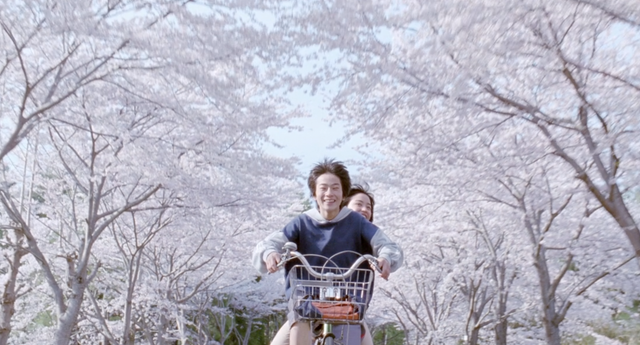
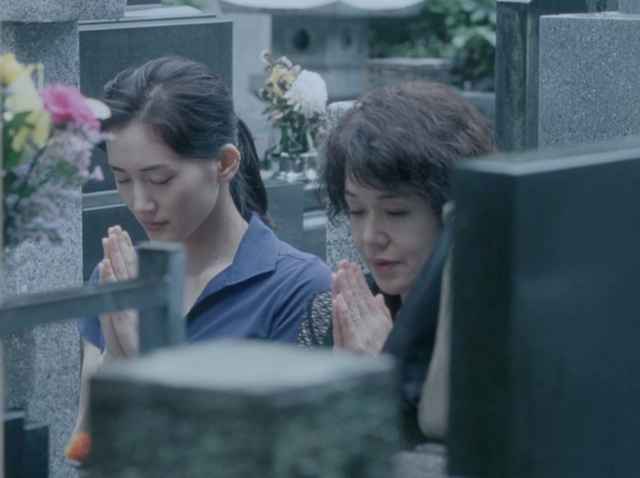
The film strikes a chord that will resonate with anyone that has siblings, and resonate even more with those that understand the unique and special bond that sisters share. So sweet that it might give you a toothache, the film gives a touching cinematic experience with wonderful acting and execution that simultaneously acts as yet another window to Japanese culture and daily life and inspires with its humble simplicity and heartfelt message. Its another impressive notch in the belt of film maker ,Hirokazu Koreeda, and adds additional clout to a filmography that includes award winning films such as Shoplifters and Like Father Like Son This way for the warm and fuzzy feelings, and as always, I wish you happy viewing :).
